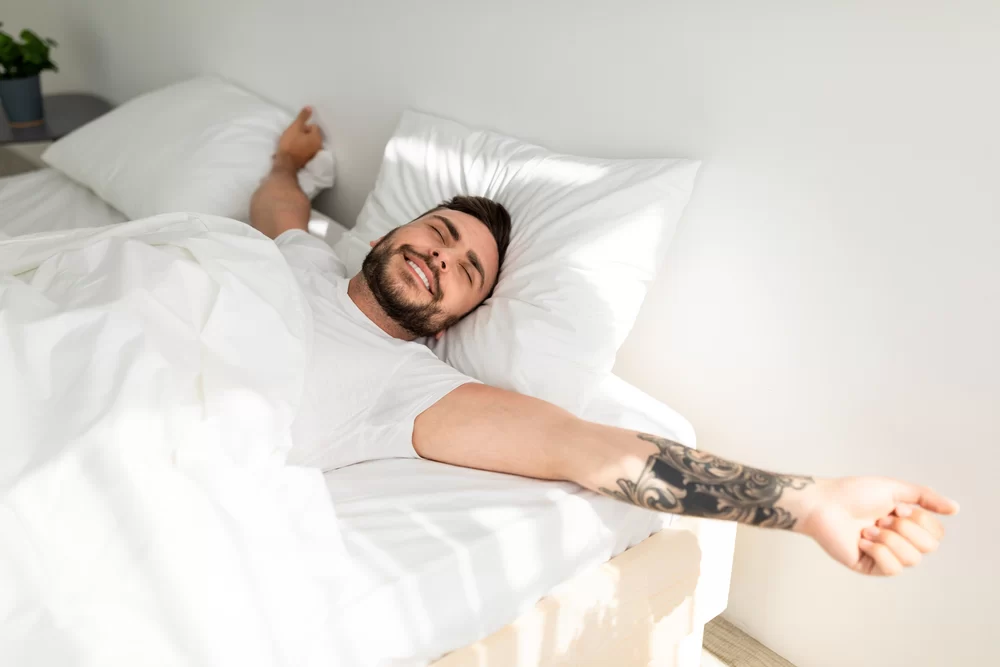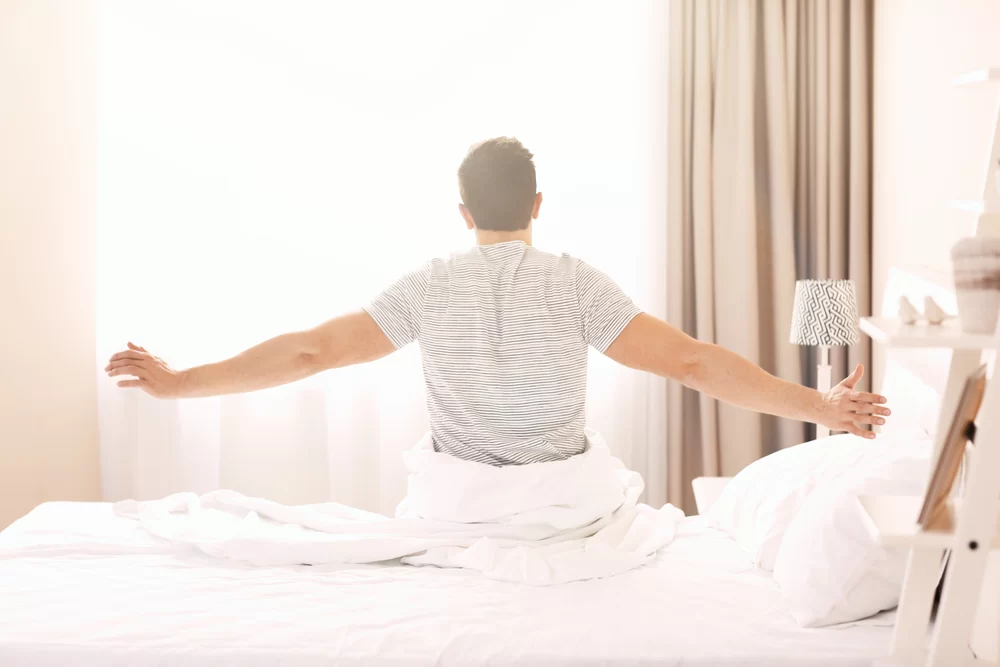Circadian Rhythm Reset – Understanding Your Body Clock
February 28, 2023

If your sleep schedule is a mess, you most likely need a circadian rhythm reset. Your circadian rhythm is your body’s internal biological clock, which regulates the sleep-wake cycle and other physiological processes that determine how awake or tired you feel throughout a 24-hour day.
While it is an internal biological process, it is influenced heavily by external cues, such as bright light, temperature, and your usual routines. Since your circadian rhythm relies heavily upon external and environmental factors, you can reset or adjust it to better suit your needs.
Knowing how to reset your body’s internal clock can be important if your sleep schedule is messed up due to shift work, jet lag from travel, or even just staying up too late due to poor discipline. It can also be helpful if you are just feeling tired throughout the day and want to get to bed earlier so you can wake up feeling more refreshed.
How Can We Help?
Not only will we explain in greater detail what your circadian rhythm is and what it controls, but we will also explain how you can reset and resynchronize your internal clock. If you’re ready to improve your sleep schedule and get things back on track, it’s time to get started!
What Is Your Circadian Rhythm?
Before we explain how you reset your circadian rhythm, it is helpful to take a moment to explain what exactly it is, as this will help you understand its importance.
As mentioned, the circadian rhythm refers to the internal biological clock regulating your sleep-wake cycle. Essentially, this is the pattern of alternating sleepiness and wakefulness periods that naturally occur throughout the day.
The sleep-wake cycle is critical for your overall health and well-being, as proper sleep is essential for a healthy body and mind. If you have ever had to pull an all-nighter, you know how physically and mentally drained a lack of sleep can make you feel the following day.
Not only does your circadian rhythm regulate your sleep-wake cycle, but it also controls essential physiological functions throughout your body, including hormone production, immune system responses, digestion, metabolism, and so much more.
What Controls Your Circadian Rhythm?

Your circadian rhythm is controlled by a cluster of brain cells collectively known as the suprachiasmatic nucleus. As discussed above, these cells rely on external cues, such as bright light and temperature. The purpose of this internal biological clock is to synchronize your body’s sleep cycle with the external environment.
Essentially, your circadian rhythm is designed to help you sleep at night and be awake during the day. Your suprachiasmatic nuclei keep your circadian rhythm in check by following cues from external factors.
These factors are known as zeitgebers. Naturally, light and temperature are critical external cues that will impact your internal body clock, but there are also other factors, such as when you eat, exercise, and nap. As we will discuss in greater detail, certain substances, like alcohol and caffeine, can inhibit your circadian clock.
How Do You Reset Your Circadian Rhythm?

Essentially, resetting your circadian rhythm is a concise way of saying you are changing when you feel tired and awake. It is a way of scheduling when you sleep.
As we established, your circadian rhythm is largely controlled through external cues. This means you can alter your schedule and exposure to these cues to manage your circadian rhythm.
Whether your circadian rhythm has been messed up due to a specific disruption, or you just want to line your sleep-wake cycle up to get better sleep at night and be more productive during the day, the following tips can help:
1. Eat at Consistent Times
Timed meals can help you regulate your body’s internal master clock. Avoid eating late at night, as these nighttime meals and snacks can signal to your body that it is not time to sleep.
2. Exercise During the Day
Exercise is another cue that your body should stay awake, so you should avoid exercising at night unless you want to stay up late. Exercise is essential for sleep quality, so you don’t want to avoid it. Instead, just alter when you exercise. Exercising at a regular time during the day will help you reset when your body is at its most awake.
If you want to signal to your brain that it’s time to wake up, a quick stretch and light morning walk can help.
3. Avoid Caffeine & Alcohol at Night
Avoid consuming alcohol and caffeine at night if you want to adjust your sleep schedule. Caffeine is a stimulant that can inhibit and delay sleepiness.
Avoid that post-meal espresso if you want to fall asleep on time. Even a cup of decaf coffee or a can of soda can contain enough caffeine to alter your sleep-wake cycle. Alcohol can also impact your circadian rhythm by confusing your body, so it is best to avoid those nightcaps while trying to reset your circadian rhythm.
4. Be Mindful of Light Exposure & Screen Time
Light plays a significant role in regulating your circadian rhythm, whether it's natural light or artificial light. If you want to feel more awake in the mornings, expose yourself to light when you want to start waking up. Bright light exposure will wake your body and signal to your brain that this is your new waking time. Natural sunlight works the best, but there are artificial vitamin D lights that mimic natural light that can work just as well.
Conversely, you should make your environment as dark as possible about an hour before you want to start falling asleep. This includes avoiding screens, which emit blue light signals to the brain that you should be awake. Dark, blackout curtains can be helpful if you want to block out external light.
5. Make Changes Gradually for the Best Results
Resetting your circadian rhythm is a gradual process that should be carried out over one or two weeks. You should adjust your bedtime and when you wake up by half-hour increments.
For example, if you are currently going to sleep at 2 a.m. and waking up at 10 a.m., but you would like to fall asleep and wake up earlier, you would change your bedtime to 1:30 a.m. the first night, as well as set your morning alarm for 9:30 a.m.
From there, you could keep making half-hour changes until you were at your preferred sleep-wake schedule. By changing your schedule and making the above changes, you should be able to reset your circadian rhythm.
For More Information
If you need more help resetting your circadian rhythm, try Lights Out Nighttime Sleep Aid. This supplement contains natural ingredients that will improve sleep quality and help you fall asleep faster. It will also help you feel refreshed and ready to take on the day.
If you struggle with insomnia or just find it difficult to sleep when you would like, we recommend reading Tips for Sleeping – How to Fall Asleep Faster and Sleep Better. It is packed with useful information that can help you get the sleep a man needs to take on the day.

 Back to Blog
Back to Blog